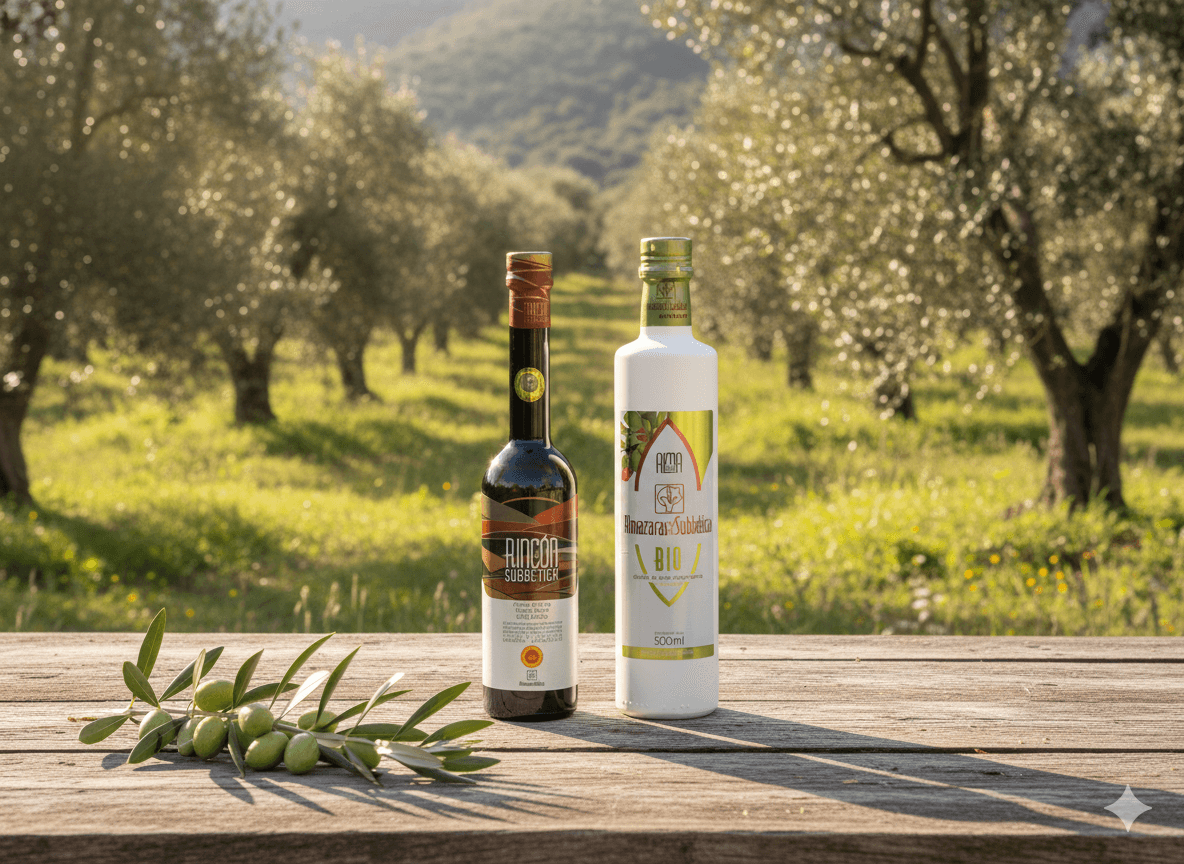
The demand for organic extra virgin olive oil among consumers is increasing. But how does organic EVOO differ from conventional? It doesn’t differ in its chemical, nutritional or organoleptic properties, but rather in the type of cultivation, the conditions surrounding the production process of the EVOO, as well as in the requirements to obtain organic certification as such.
In the case of organic extra virgin olive oil, production techniques must be used that avoid or at least significantly reduce environmental pollution. Likewise, only natural fertilisers and soil conditioners may be used, such as compost, manure or plant cover. To control pests, biological or mechanical methods are used, such as beneficial fauna, pruning or traps.
The entire process of obtaining organic oil (harvesting, milling, storage and packaging) must be carried out completely separately from that of conventional EVOO.
In addition, organic products must be certified by an authorised body, and every packaged organic food produced in the European Union must carry the official logo and the seal of the certifying organisation.
The European Union rules on the production and labelling of organic products are very clear. They prioritise respect for natural cycles, the maintenance and even improvement of soil, water, air and plant health quality. It is essential to preserve the elements of the natural landscape and to make responsible use of energy and natural resources. This involves choosing olive varieties that are especially suitable for cultivation in the region, resistant to pests and diseases, and always in accordance with the specific methods of organic production.
It is also essential to ensure organic production at every stage of EVOO production.
At Almazaras de la Subbética we have two true organic gems. Rincón de la Subbética, made from Hojiblanca olives, is the most awarded EVOO in the history of Spain. For its part, Almaoliva Bio is distinguished by the harmony of the different nuances that make it up. It is a coupage of Hojiblanca, Picual and Picuda varieties. Both are organic, and their production process respects the environment, resulting in a natural, pure and balanced flavour.
Furthermore, Almazaras de la Subbética holds several certifications that guarantee the authenticity and quality of its organic products. Consumers are increasingly looking for not only authentic EVOOs but also sustainable ones, backed by certification that assures their organic and quality choice.
Among the certifications that endorse and support the work carried out at Almazaras de la Subbética is that of the Andalusian Committee for Organic Agriculture (CAAE), the body dedicated to organic and sustainable certification. CAAE is accredited by the National Accreditation Entity (ENAC) and by the Ministry of Agriculture, Fisheries and Food.
What does it mean when an EVOO has the CAAE seal? Products certified in this way assure consumers that they have been produced following organic and sustainable practices.
It can also boast the BIOSUISSE certification, issued by a prestigious private organisation made up of organic farmers in Switzerland. This distinction guarantees that farming is carried out free from both synthetic chemical products and genetically modified organisms, while promoting practices aimed at encouraging biodiversity and environmental sustainability.
Do you need more reasons to try our organic EVOOs? Visit our shop and get ready to enjoy some of the finest oils in the world.